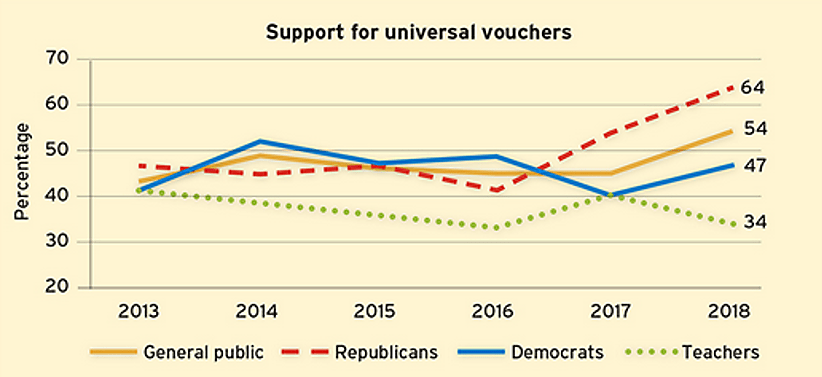EducationNext just released its 12th annual survey of public opinion. The nationally representative survey, administered in May 2018, finds that 54 percent of the general public supports private school vouchers for all students. This result is up 9 percentage points (20 percent) from 2017. On the other hand, only 43 percent of the survey respondents support income-targeted vouchers. This is great news for all families. Here’s why.
While there are 63 private school choice programs in the majority of the United States, less than one percent of the school-aged population actually exercises private school choice. This extremely low participation rate is largely explained by the fact that all school voucher programs are targeted based on student disadvantage. No voucher programs in the U.S. are available to all students.
Of course, universal voucher programs would benefit children from families that earn higher incomes. But universal vouchers would actually benefit the least advantaged children more than anyone. Why?
Let’s use an extreme example. Imagine that a voucher program was targeted to the very least advantaged student in a state. No educational entrepreneur would see one additional student as a big enough opportunity to take the risk of opening a new school. On the other hand, a program giving thousands of new students opportunities to attend private schools would entice several educational entrepreneurs to open new schools.
The result? Even the very least advantaged student has more educational options when school choice is open to all students. Put differently, the least advantaged students are better off when school choice programs are not targeted to them. And because the least advantaged children need better schooling options than anyone else, universal programs would benefit the least advantaged the most.
Maybe the general public is figuring this out. Or maybe people are just figuring out that all families should be able to pick the schools that are best for their own kids. Either way, majority support for universal school vouchers could lead to a lot more educational freedom in the near future.

